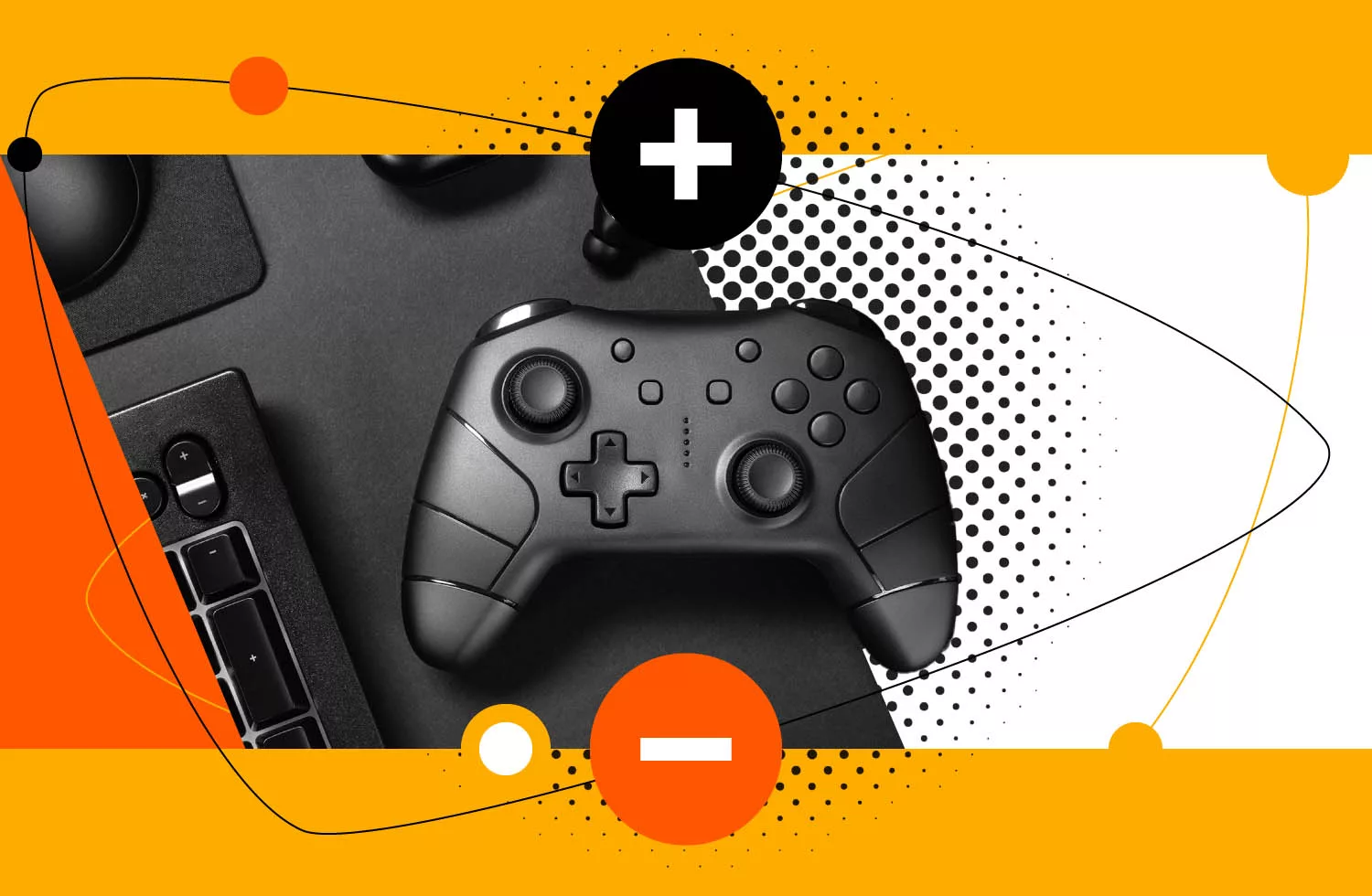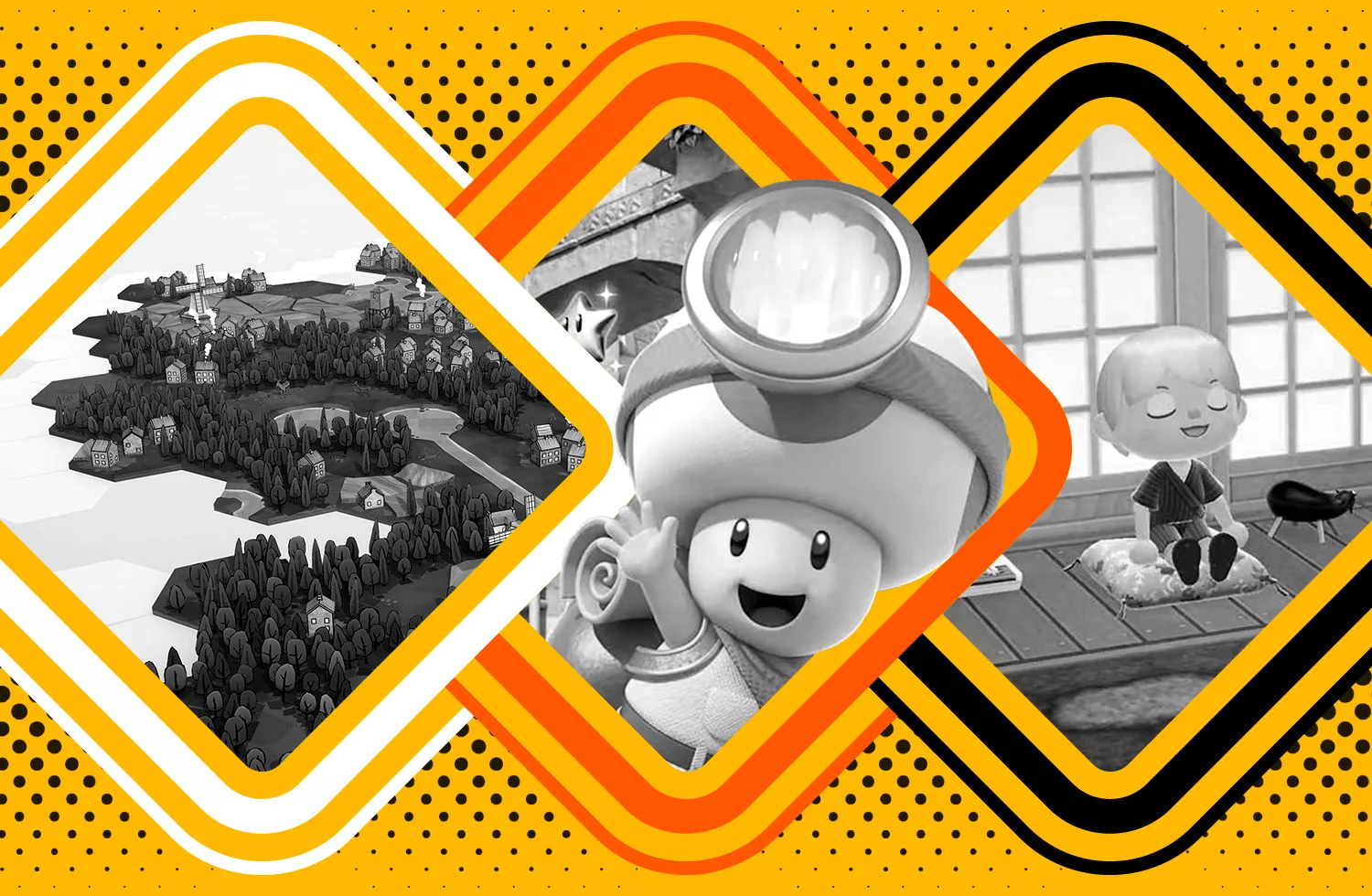
Looking at the reality-bending, immersive gaming experiences on offer today, it can be easy to forget the humble origins of video gaming. We have come a long way over the years, with new console generations refining gaming every decade or so.
Each new console generation represents not only a leap forward in technology but also a cultural progression.
The games we associate with console generations, and the features that we treasure the most, speak to the times they were released, as well as the development of video game culture from the 1970s up to the present era.
If you’re excited about next-gen consoles and want to learn more about the legacy from which they sprang, read our essential history of console generations.
1st generation consoles
The dawn of the video gaming era arguably began in 1972, with the release of Baer’s Magnavox Odyssey.
The game was incapable of providing color, sound, or just about anything other than 3 movable dots on the screen, controlled by clunky dials plugged into your television set.
What’s more, Baer had to release a “screen upgrade” not long after, which consisted of a piece of cling film you wrapped around your TV so that you could actually view your game of virtual tennis.
2nd generation consoles
Beginning around 1976, the second generation of consoles was defined by iconic machines like the Fairchild Channel F, the Atari 2600, and the Bally Astrocade.
These were the first games that were made available via separate cartridges, rather than being fused to limited circuit boards. In addition, those old-school dials finally gave way to actual joystick controllers, giving us video gaming as we broadly recognize it to this day.
3rd generation consoles
Beginning in 1983, the so-called “eight-bit” of the console generations ushered in the NES, the Atari 7800, and the Commodore 64, arguably the first full “modern” gaming consoles that many gaming fans still cherish dearly to this day.
This era saw the golden age of Nintendo, the Japanese video game empire that would take over the world by launching iconic franchises such as Zelda, Mario Bros., and Metroid. With these games, the “button-masher” genre was officially born.
4th generation consoles
The fourth generation kicked up the color and the graphics a few notches, with 16-bit taking over the industry by 1987.
This time period saw the release of the Sega Genesis and the Super NES, with most of the games focusing on reproducing the arcade “runner” and shooter experience at home.
Perhaps most significantly, 4th gen saw video games become a truly mass-market product for the first time, with the Sega Genesis shifting more than 30 million units worldwide by 1990, spurred on by smash-hit games such as Sonic the Hedgehog and Mortal Kombat.
5th generation consoles
Of all the console generations, the 5th gen was the one that brought the genre of adventure games to our screens for the first time.
Thanks to the advent of full 3D graphics and CD ROM software that allowed for longer games and save files, the world was able to play true story-based content such as Final Fantasy, Metal Gear Solid, and Resident Evil.
This was an era that ran from around 1993 and was undoubtedly defined fully by the Playstation, as well as the N64 to a lesser extent.
6th generation consoles
While the fifth generation was the 32-bit generation, the following sixth generation blew us all away with 128-bit gaming, an innovation that made games cheaper, more accessible, and saw individual games sell tens of millions of units for the first time ever.
This is the 1998-2005 generation, the one that gave us the first Xbox, the Dreamcast, the PS2, and the GameCube.
This was undoubtedly the generation that dislodged Nintendo and Sega from the peak position, with Sony and Microsoft tipping the scales in their favor with game-changing titles such as Morrowind, Prince of Persia, and Grand Theft Auto: San Andreas.
7th generation consoles
7th generation consoles were undoubtedly the shortest-lived of all of the generations but were nonetheless ones that introduced novel ideas about what gaming could be, some of which are still with us today.
The most notable moment in the 7th generation consoles period was Nintendo’s comeback with the release of the Wii and the DS handheld console, which Microsoft and PlayStation were keen to copy with their own versions of motion capture technology.
Wii Sports remains one of the most iconic and widely played games of all time, even if the once-promising form of gameplay it represented has died a death since then.
8th generation consoles
This is the generation that defined gaming innovation. 8th gen, which began in around 2012 and brought us the Xbox One and PS4 was the first era of the blockbuster game.
It gave us games that cost more to develop than even the most ambitious Hollywood productions, while some, such as GTA V, Red Dead Redemption 2, and Animal Crossing: New Horizons, made studios more money than was previously thought possible in this industry.
It was the generation that brought video gaming and video gaming culture absolutely everywhere, and one that changed the media landscape forever.
9th generation consoles
9th generation consoles are just now having their impact felt. Currently, the PS5 and the Xbox Series S are the only contenders in this space, but the implications are plain to see.
The graphics, computing power, and memory far outstrip anything we have seen before, promising hyperreal gaming that was previously out of reach. What’s more, these next-gen consoles will come of age at a unique era in cross-platform gaming.
Meanwhile, AI, VR, AR, and blockchain will all likely shape the development of this exciting new generation of games, while also influencing trends in browser games.

Next Gen Consoles
This completes our run-down of the history of console generations. What will the future bring? Will it be AI updates of AR and VR? Will it be something completely new and different, maybe something we haven’t even been able to fathom?
And the most important question of all – when will we be able to smell games?
For the time being, we will just have to be patient. Or maybe one of you reading this post will be responsible for the next stage in gaming? We can’t wait to see how this turns out!










